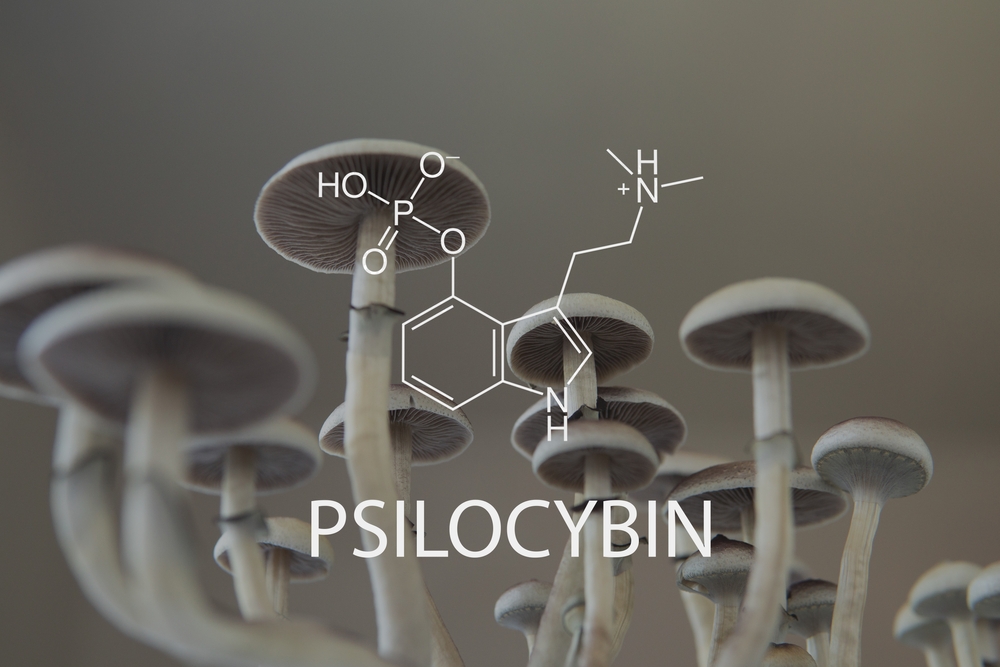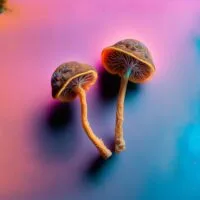For those on the frontlines of the pandemic, the burden was more than physical—it was emotional, mental, and deeply personal. Healthcare professionals, once revered as heroes, have faced an unrelenting storm of grief, burnout, and depression, leaving many searching for a reprieve. But what happens when traditional methods fail to heal such profound wounds?
A surprising contender has emerged in the form of psychedelics, with psilocybin—derived from “magic mushrooms”—leading the way. Once associated with counterculture movements, this unconventional treatment is now making its way into clinical trials, showing astonishing promise in addressing mental health challenges among medical professionals.
Could a single transformative experience be the key to unlocking hope for those who’ve dedicated their lives to saving others?
The Struggles of Frontline Healthcare Workers
The COVID-19 pandemic has profoundly impacted healthcare professionals, subjecting them to unprecedented levels of stress, burnout, and psychological distress. Frontline workers have faced relentless challenges, including overwhelming patient loads, high mortality rates, and the emotional toll of providing care under crisis conditions.
Studies have highlighted the significant mental health burden on healthcare workers during the pandemic. For instance, research published in BMJ Open reported that 28% of UK healthcare workers experienced high levels of depression, 33% faced heightened anxiety, and 15% exhibited symptoms indicative of post-traumatic stress disorder (PTSD) during the initial phase of the pandemic.
The psychological impact extends beyond individual well-being, affecting the overall healthcare system. A study from the Care Quality Commission emphasized that the sustained pressure on health and social care workers has led to increased anxiety, stress, exhaustion, and burnout, potentially compromising patient care quality.
In Australia, the situation has reached a critical point, with psychiatrists resigning en masse due to workforce and retention crises. Approximately 175 out of 260 public hospital psychiatrists in New South Wales have tendered their resignations, citing burnout and poor working conditions. This exodus underscores the dire state of mental health among medical professionals and the urgent need for systemic reforms.
The emotional challenges faced by healthcare workers are multifaceted. Many describe a sense of betrayal by health systems, leaders, and colleagues; guilt from feeling that they had not been able to do enough; and grief from witnessing innumerable deaths and suffering. The question that repeatedly came up, in different forms, was ‘Do I matter?’
How Psilocybin Therapy Works

Psilocybin, the active compound in certain mushrooms, has garnered attention for its potential therapeutic effects, particularly in treating depression among healthcare professionals. Understanding its mechanism of action is crucial to appreciating how it may alleviate depressive symptoms.
Once ingested, psilocybin is metabolized into psilocin, which interacts primarily with serotonin receptors in the brain, notably the 5-HT2A receptor. This interaction leads to several neurobiological effects:
- Neuroplasticity Enhancement: Psilocybin promotes the growth of new neural connections, enhancing the brain’s plasticity. This increased plasticity allows individuals to break free from entrenched negative thought patterns, facilitating the development of healthier mental frameworks.
- Altered Brain Network Connectivity: Research indicates that psilocybin disrupts the default mode network (DMN), a brain network associated with self-referential thinking and rumination. By modulating the DMN, psilocybin can reduce overactivity linked to depression, enabling a more flexible and open cognitive state.
- Emotional Release and Processing: The psychedelic experience induced by psilocybin often leads to profound emotional insights. This can help individuals process repressed emotions and traumas, fostering emotional release and healing.
A recent randomized clinical trial involving 30 clinicians who had experienced depression due to frontline work during the COVID-19 pandemic found that psilocybin therapy resulted in a significant, sustained reduction in depressive symptoms. Participants reported that the therapy helped them work through complex feelings within their professional and personal lives, allowing them to come to terms with their contributions during the pandemic rather than dwelling on perceived shortcomings.
Dr. Anthony Back, the lead investigator of the study, noted, “For doctors and nurses who feel burned out or disillusioned or disconnected from the patient care they want to provide, this study shows that psilocybin therapy is safe and can help these clinicians work through those feelings and get better.”
Clinical Trials and Key Findings
Recent clinical trials have explored psilocybin’s potential to alleviate depression, particularly among healthcare professionals impacted by the COVID-19 pandemic.
A randomized clinical trial conducted by the University of Washington involved 30 clinicians who had provided frontline care during the pandemic and were experiencing symptoms of depression. Participants received either a single 25 mg dose of psilocybin or a placebo, accompanied by psychological support. The study found a significant decrease in depression symptoms in the psilocybin group compared to the placebo group. Additionally, although both groups reported some relief from burnout, the reduction was more notable in the psilocybin group. The researchers concluded that psilocybin-assisted therapy could be a helpful option for clinicians dealing with the psychological toll of the pandemic.
Beyond the healthcare sector, larger trials have demonstrated psilocybin’s efficacy in treating treatment-resistant depression. A multicenter clinical trial led by COMPASS Pathways across 22 international sites, including King’s College London, found that a 25 mg dose of psilocybin, alongside psychological support, significantly reduced symptoms of depression in participants with treatment-resistant depression. This trial is considered the largest of its kind to date.
Benefits Beyond Depression
Psilocybin therapy has demonstrated potential benefits extending beyond the alleviation of depression, offering promising avenues for addressing various mental health challenges:
- Anxiety Reduction: Studies have indicated that psilocybin can significantly reduce anxiety, particularly in individuals facing life-threatening illnesses. A study by Johns Hopkins Medicine found that psilocybin treatment led to substantial decreases in anxiety and depression in patients with life-threatening cancer diagnoses, with effects lasting up to six months.
- Enhanced Well-being and Life Satisfaction: Participants in psilocybin studies often report increased feelings of well-being, life satisfaction, and social connectedness. These effects contribute to an overall improvement in quality of life, extending beyond the mere reduction of depressive symptoms.
- Addiction Treatment: Emerging research suggests that psilocybin may aid in treating substance use disorders, including alcohol and nicotine addiction. By facilitating profound psychological insights and enhancing motivation for change, psilocybin-assisted therapy has shown promise in helping individuals overcome addictive behaviors.
- Improved Sleep Quality: Recent studies have observed that psilocybin therapy can lead to improvements in sleep quality, which is often disrupted in individuals with depression and anxiety. Enhanced sleep contributes to better mental health and overall functioning.
These multifaceted benefits highlight psilocybin’s potential as a versatile tool in mental health treatment, offering hope for individuals seeking relief from a range of psychological challenges.
Risks and Challenges of Psychedelic Therapy
While psilocybin therapy shows promise in treating various mental health conditions, it is essential to recognize and address the associated risks and challenges:
Psychological Risks: Some individuals may experience adverse psychological effects during or after psilocybin sessions, including emotional instability, anxiety, or cognitive disturbances. A study highlighted that therapists have observed both short-term and long-term negative effects in patients undergoing psilocybin-assisted treatments, emphasizing the need for careful patient selection and monitoring.
Integration Challenges: Post-session integration, where individuals process and incorporate their psychedelic experiences into daily life, can be difficult. Without adequate support, patients might struggle to make sense of their experiences, potentially leading to confusion or distress.
Legal and Ethical Considerations: The legal status of psilocybin varies by jurisdiction, with many regions classifying it as a controlled substance. This legal ambiguity poses challenges for both practitioners and patients. Ethical dilemmas also arise concerning informed consent, especially given the profound and sometimes unpredictable nature of psychedelic experiences.
Physical Health Concerns: Although psilocybin is generally considered physiologically safe, certain individuals, particularly those with pre-existing cardiovascular conditions, may face health risks due to potential increases in heart rate and blood pressure during sessions.
Therapeutic Misconduct: The altered state of consciousness induced by psilocybin can make patients more vulnerable, raising concerns about the potential for unethical behavior or boundary violations by therapists. Ensuring rigorous training and ethical standards for practitioners is crucial to mitigate this risk.

The Future of Psychedelics in Medicine
The future of psilocybin in medicine appears promising, with ongoing research and clinical trials exploring its potential applications in various mental health treatments. Recent studies have demonstrated psilocybin’s efficacy in alleviating symptoms of treatment-resistant depression. For instance, a multicenter clinical trial led by COMPASS Pathways found that a 25mg dose of psilocybin, alongside psychological support, significantly reduced depression symptoms in participants.
Beyond depression, psilocybin is being investigated for its therapeutic potential in conditions such as post-traumatic stress disorder (PTSD), anorexia nervosa, and substance use disorders. The Psychoactive Trials Group at King’s College London is conducting controlled clinical trials with psychedelics, including psilocybin, for treatment-resistant depression and PTSD.
As research progresses, there is a growing interest in integrating psilocybin into conventional medicine. This integration is accompanied by evolving legal landscapes, with some regions reevaluating the legal status of psilocybin to facilitate medical research and potential therapeutic use.
A New Frontier for Healing
The exploration of psilocybin therapy offers a beacon of hope for healthcare professionals and others battling severe mental health challenges. As research continues to unveil its potential, psilocybin stands at the crossroads of traditional and innovative medicine, promising transformative healing for those who have long struggled with depression, anxiety, and burnout.
However, this groundbreaking therapy is not without challenges. From legal and ethical considerations to ensuring safety and accessibility, the road to integrating psychedelics into mainstream medicine is a complex but crucial journey. With growing acceptance and continued research, psilocybin could revolutionize how mental health is treated, offering a lifeline to those who need it most.



